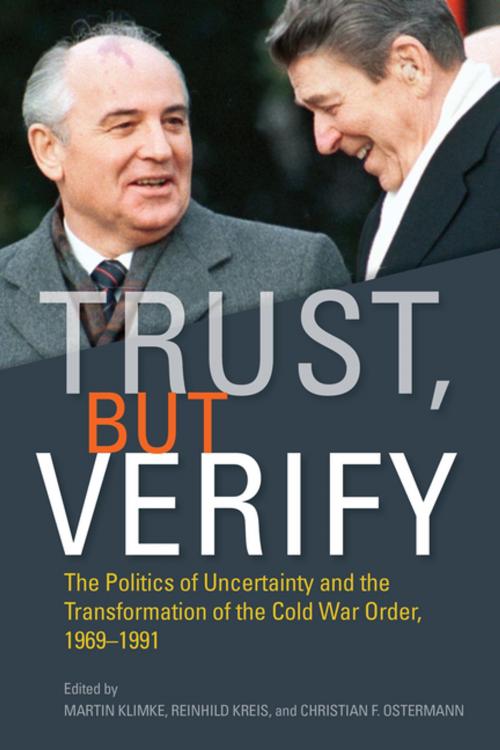Trust, but Verify
The Politics of Uncertainty and the Transformation of the Cold War Order, 1969-1991
Nonfiction, History, Military, Weapons| Author: | ISBN: | 9781503600133 | |
| Publisher: | Stanford University Press | Publication: | November 1, 2016 |
| Imprint: | Stanford University Press | Language: | English |
| Author: | |
| ISBN: | 9781503600133 |
| Publisher: | Stanford University Press |
| Publication: | November 1, 2016 |
| Imprint: | Stanford University Press |
| Language: | English |
Trust, but Verify uses trust—with its emotional and predictive aspects—to explore international relations in the second half of the Cold War, beginning with the late 1960s. The détente of the 1970s led to the development of some limited trust between the United States and the Soviet Union, which lessened international tensions and enabled advances in areas such as arms control. However, it also created uncertainty in other areas, especially on the part of smaller states that depended on their alliance leaders for protection. The contributors to this volume look at how the "emotional" side of the conflict affected the dynamics of various Cold War relations: between the superpowers, within the two ideological blocs, and inside individual countries on the margins of the East–West confrontation.
Trust, but Verify uses trust—with its emotional and predictive aspects—to explore international relations in the second half of the Cold War, beginning with the late 1960s. The détente of the 1970s led to the development of some limited trust between the United States and the Soviet Union, which lessened international tensions and enabled advances in areas such as arms control. However, it also created uncertainty in other areas, especially on the part of smaller states that depended on their alliance leaders for protection. The contributors to this volume look at how the "emotional" side of the conflict affected the dynamics of various Cold War relations: between the superpowers, within the two ideological blocs, and inside individual countries on the margins of the East–West confrontation.















